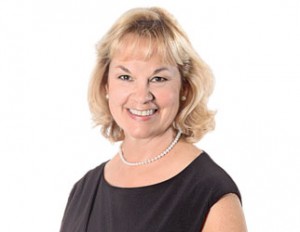RRSPs in your 50s and 60s: The home stretch
If you're behind on your RRSP contributions, now is the time to catch up on your savings.
Advertisement
If you're behind on your RRSP contributions, now is the time to catch up on your savings.

If you don’t have a bulging RRSP portfolio by your 50th birthday, don’t get discouraged. Few people do. The good news is that your 50s tend to be years when household expenses start to subside. Kids grow older and move out of the house, and the end of your mortgage may be in sight.
But as you get closer to retirement, you’re more vulnerable to market dips and crashes. Sam and Beatrice Kirby of Winnipeg were shaken by the stock market collapse in 2008. (We’ve changed their names to protect their privacy.) After losing almost a third of their RRSP savings, the Kirbys sold all their mutual funds and now hold about $300,000 in cash and GIC rates in their RRSPs. “We’ve seen how you can lose money overnight,” says Sam, who was injured in a car accident four years ago and now works only two days a week. Beatrice, a 54-year-old part-time accountant, has also suffered setbacks to her health, but the couple say they will continue to make RRSPs a priority, putting in about $5,000 a year. “We’ve paid off the house and plan to work part-time until age 60,” says Beatrice. “We’re hoping our RRSP nest egg will last us a lifetime.”
Meanwhile, 59-year-old Debra Bates of Edmonton has already taken the plunge into retirement. The former real estate agent and bank teller supervisor retired last fall and she’s now happily spending four months in sunny Arizona every year. Bates, who divorced her husband at age 33 and raised her two young kids on her own, is the first to admit that it wasn’t easy. “There was always an unexpected expense to worry about, whether it was trumpet lessons for my son or school trips for my daughter.”
To make it work, Bates bought furniture at garage sales, learned how to turn one chicken into four separate meals and had movie nights at home to save those RRSP dollars. “I kept telling myself it was temporary, and things would be better next year.”
Things did get better. In 2000, Bates started selling real estate, and was raking in around $100,000 a year. Even though she made several high-risk real estate investments, she always made the maximum contribution to her RRSP every year, investing in GICs, index funds and blue-chip stocks. “I was always a hands-on investor,” says Bates. “I’m all the better for it today.”
What the experts say
In your 50s and early 60s, you need to make a conscious effort to catch-up with your RRSP savings. You should also compare the tax savings of RRSP contributions now with the tax bill you’ll face when you make withdrawals in retirement. That’s because seniors face clawbacks of Old Age Security benefits if they have an income above $67,668. “The Kirbys should consult a planner to see if they would be better off saving through a TFSA instead of an RRSP,” says Lamontagne.
Schlenker further advises families to invest their RRSP prudently. Once you’re in your 50s, you may not have enough time to make up for investment losses, and many people make the mistake of holding too much in stocks as they approach retirement. But the Kirbys have the opposite problem. “Their investment strategy has understandably become conservative, but probably too conservative,” says Schlenker. That’s because a married couple in their mid-50s, even when both have health problems, is likely to see at least one of the two live for 30 years or more. The Kirbys should add some solid blue-chip stocks or equity ETFs so their portfolio can beat inflation.
The key to success is to never lose sight of your retirement goals—at any age. Make sure you pay down debt as quickly as possible, and then resolve to stay out of debt. Contribute to your RRSPs annually if you can—or have a plan to catch up when the demands of a mortgage and growing children are gone. Manage your money well by keeping a balanced portfolio of equities and fixed income, and make that mix a bit more conservative over the years. Keep a close eye on investment fees and aim to keep them below 1% at all times. As well, spend wisely and learn how to keep expenses low so that you’ll never have to struggle to find money for retirement savings.
Finally, make sure to have an accountant look at your tax situation as your income creeps up later on in your career—that way you’ll be able to keep more of your savings.
Debra Bates did all of these things and is thankful now. She’s having a great time, safe in the knowledge that her money will never run out. “We never think we’re going to grow old, but it happens to all of us,” says Bates, who now spends her days line dancing, swimming, traveling, attending concerts and volunteering. “The more prepared we are when it happens, the better the chance that retirement will bring us peace of mind and happy, happy days.”
Share this article Share on Facebook Share on Twitter Share on Linkedin Share on Reddit Share on Email